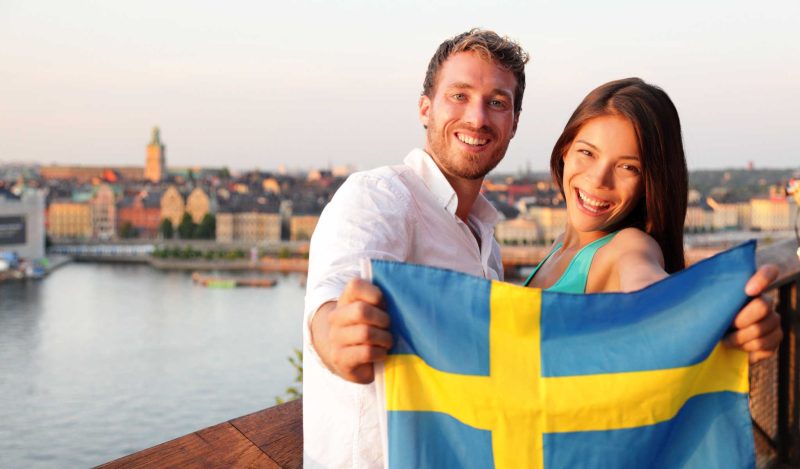According to the Swedish Statistics Agency, three years into the pandemic Sweden has the lowest rate of excess deaths in Europe, Danish TV2 recently reported, quoting also several other sources, all showing more or less the same.
A year ago Nature published a damning report on Sweden’s Covid-19 strategy, claiming it was unscientific, unethical and undemocratic. Similar accusations have been echoed by the media for a long time. Even the King of Sweden reprimanded his own government in December 2020 for having ‘failed.’
While almost everywhere else people cowered in their homes, schools were closed, mask mandates the norm, the Swedish went on with normal life. The panic that had gripped the rest of the world left Sweden mostly untouched. The pseudo-science of ‘stopping the virus’ by masking people and locking them up didn’t affect the policies of the Swedish Public Health Agency, and despite defamation and even death threats, Chief Epidemiologist Anders Tegnell never swayed. ‘Judge me in a year,’ he said in an interview with Unherd in July 2020.
At that time, Sweden had just had a large peak in Covid-19 infections, while neighbouring Denmark, Norway and Finland had not. In a year, after new and much bigger surges in all countries, daily infections in Sweden were the lowest. Now, three years after the pandemic struck, it is clear that Sweden in fact did better than the rest of Europe.
As Johan Anderberg explains in his 2022 book The Herd, the Swedish Public Health Agency was under tremendous pressure to do something. On March 11 and 12 Denmark and then Norway closed all schools and many expected Sweden to do the same. But instead the Swedish minister for education declared this wouldn’t happen. The explanation was simple common sense: If we close all schools the healthcare workers will have to stay home with their children, and then the healthcare system will suffer.
At this point, Tegnell and his predecessor Johan Giesecke, by then retired, but brought in as an adviser, realised how common sense had been thrown out the window and panic taken its place. Later that evening Giesecke sent the now famous email to Tegnell, containing one line in Latin, quoting 18th century statesman Axel Oxenstierna: ‘An nescis, mi fili, quantilla prudentia mundus regatur’ (Be aware, my son, of with how little wisdom the world is governed).
The world had gone mad. Both Tegnell and Giesecke seem to have fully understood this and the terrifying implications it would have, while elsewhere most were already being consumed by the madness. For Sweden, this realisation was of crucial importance.
Sweden was widely criticised for applying a ‘laissez-faire’ strategy, even accused of deliberately sacrificing the elderly. But in fact it did introduce measures. The key difference was that those were in the form of recommendations; the Swedish government respected the principles of democracy as well as the longstanding principle of avoiding panic among the population. The Swedish independent Corona Commission issued its final report in February 2022, acknowledging the overall response was proportional.
It was clear very early on who was threatened by the coronavirus, how those in their 80s were 400 times more likely to die from it than those in their 20s. Sooner or later the virus would spread and herd immunity would be reached, so the all-important thing was to protect those most at risk.
Reaching immunity was surely part of the Swedish strategy, and it has proven harder to reach than expected. But this was not the most important difference between the approach of the Swedish and that of others. The key difference was how elsewhere the big picture got lost; an extreme narrowing of focus as explained by Mattias Desmet: The only thing that mattered was conquering the virus, nothing else counted.
The harms from locking down society, denying children education, forcing people out of their jobs, delaying treatment of life-threatening diseases; all this was ignored. It was almost as if our very life as human beings was now a threat; the concept of public health had become a caricature of itself.
It is interesting to read the damning Nature report now, considering Sweden’s success. The authors strongly criticise the lack of mask mandates, which in fact have never been shown to work. They criticise the Swedish strategy for not being ‘proactive in stopping the spread of the virus,’ a criticism based on an utter negation of reality; all such attempts have failed. Of course the Swedish response was not free from mistakes, but this was the case everywhere.
The big difference was how the Swedish Public Health Agency kept their focus, while public health authorities and governments around the world resorted to pseudoscience, losing sight of the end-goal of public health, the broad consideration for the longer-term well-being of the population.
More and more people now recognise this. Among them is Preben Aavitsland, one of Norway’s leading epidemiologists. ‘Governments around the world hid their insecurity by scolding Sweden‘s Covid-19 strategy, because Sweden undermined the mantra that we had no choice,’ Aavitsland says in a recent interview with Svenska Dagbladet. ‘We also have to look at how people’s physical and mental health has been affected, school results and drop-outs, unemployment and social economy and other things,’ he continues, and goes on to praise the Swedish Public Health Agency’s approach over Norway’s, saying that it created less fear. ‘They gave advice rather than threatening punishment.’
But as the Nature report bears witness to, pseudoscience, fear and propaganda are difficult opponents; trust in those who had all the wrong solutions seems hard to overcome. Recently a survey showed how 93 percent of the Icelandic population still believe every single decision of the authorities was based on science. And over half of young Brits think the measures weren’t strict enough. It is as if our captors are now our best friends: Stockholm Syndrome prevails. But not in Stockholm.
Reprinted from TCW
Join the conversation:


Published under a Creative Commons Attribution 4.0 International License
For reprints, please set the canonical link back to the original Brownstone Institute Article and Author.









